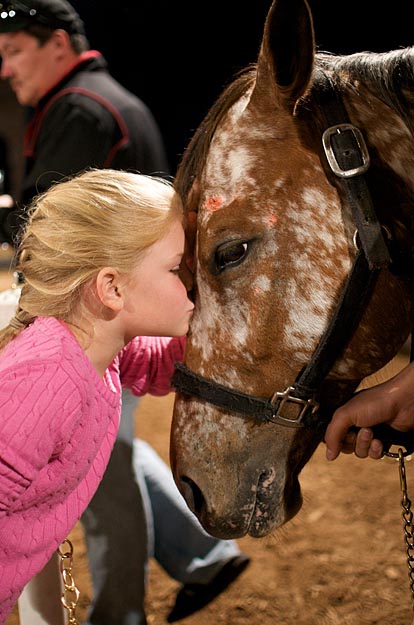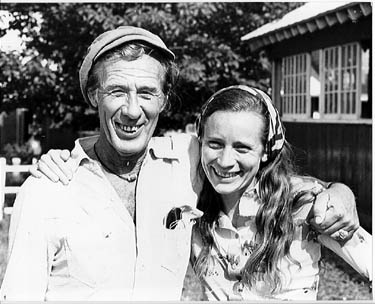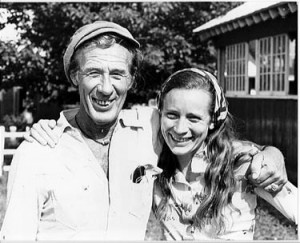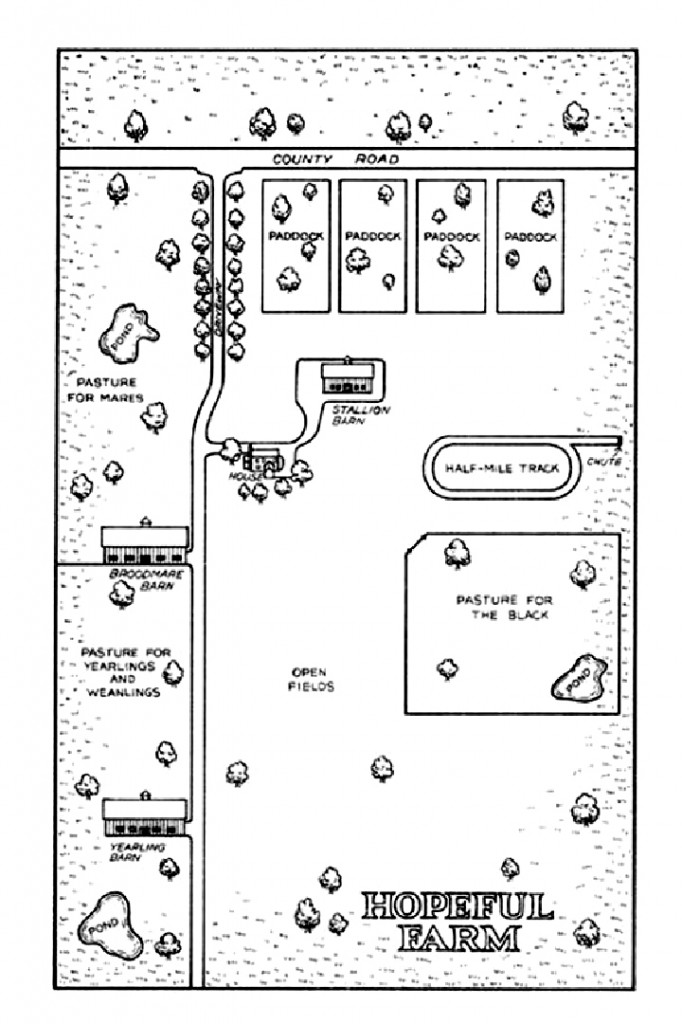Here’s the next chapter and a bit of news as this book is slated to be the next movie. It’s been in the works for awhile, it even has three scripts already written … but maybe you haven’t read the book?? Like to know what your favorite scenes are, what do you think would be the most exciting parts for a film.
THE SENTINEL
1
The gray gelding, Napoleon, was built from the ground up and butter fat. His roundness was not due to overfeeding or lack of exercise but to a most placid disposition and an ease of adapting himself to any kind of situation or way of life. He stood with one hind foot drawn in an easy, relaxed position and eyes half-closed. Only his long ears moved, and they just wobbled as if the weight of them was too much for him to bear at this particular moment. He was the picture of contentment; as peaceful as the June night which enveloped him. There was no reason for him to appear otherwise. He was perfectly happy with his life.
The grass of his paddock moved in the night breeze, giving it the soft, liquid motion of the sea. There were stars and a moon, and together they shone frostlike on the fences and roofs of the barns and main house a short distance away.
Finally the old gray roused himself to saunter about his paddock. His movements were slow and quiet. He was very particular in his choice of grass. He would stop only long enough to crop a few mouthfuls, then go on to other grasses that appealed more to his fancy and discriminating taste. But it wasn’t long before he returned to his favorite haunt beneath the billowing oak tree. He closed his eyes again.
All was quiet, and as it should be. The inky silhouette of a tall, black stallion moved in the adjacent paddock to his left. Teeth clicked sharply as the stallion cut the grass low and even.
The gray’s wobbling ears were keen, and by using them he followed the movements of the Black. He was well aware, too, of the whereabouts of the burly black horse in still another paddock, the one on his right. He had heard Satan snort a few moments ago.
The breeze became stronger, gently whipping his body with a shower of deep evening coolness. After the heat of day it felt very good. That there were no flies to bother him added to his enjoyment. For ideal comfort this was the way it should be. A fly-protected barn during the day, and at night the freedom of the paddocks. For several weeks now the horses had been allowed this privilege. It would continue as long as there was peace in the paddocks. All this the old gray knew very well; his vast experience told him so.
He knew why he occupied the paddock between the Black and Satan. To keep his head, to think for himself, to do what was expected of him … these things he had learned long ago. He did his duties willingly, whether he was on the track, helping to school young and eager yearlings in their first lessons, or here in the paddock, where he was ever watchful of the actions of mature stallions. Knowing that he was wanted, that he had a job to do, gave him a warm consciousness of virtue and well-being. He opened his eyes, took in the paddock fences, and then, as though receiving comfort and security from their great height, permitted his eyelids to drop again. This time he went fast asleep.
He awakened to the sound of a strong wind. The skies had turned black. The moon was blanketed by heavy, running clouds and the stars were mere pinpoints in the heavens, shedding no light below. The oak tree afforded the gray horse protection against the wind and he was loath to leave it. Besides, there was no reason for him to go. He need only stay here and wait out the wind. If it got worse and became a storm, he was certain that soon he would see the lights go on in the house and barn, and shortly thereafter he and the others would be taken into their stalls. He moved closer to the great trunk of the tree, and for a while just listened to the racing winds above him.
It was the wind and the blackness of the night that diverted Napoleon’s attention from the movements of the tall stallion in the next paddock. For a long while the Black had trotted lightly and warily along the fence, only his eyes disclosing the excitement that burned within him. He made no sound except for the slight, hushed beat of his hoofs over the grass. He did not shrill his challenge to the burly stallion two paddocks away from him. It was not yet time. The Black was clever and able to control the savage instinct that sought release within his great body.
The wind whipped his mane, and his tail, set high, billowed behind him. He stopped again to measure the height of the fence. In spite of his long limbs he had to stretch his head to touch the top board. He moved on to the front corner of the paddock, facing the barn. Once more he tested his strength against the center boards at this particular spot. They bent as they had before. He pushed harder this time. They cracked and split. He stopped using his strength, waiting almost cunningly until deciding on his next move. The fire in his eyes was mounting.
the rest of the story pdf – 11th book chapter




